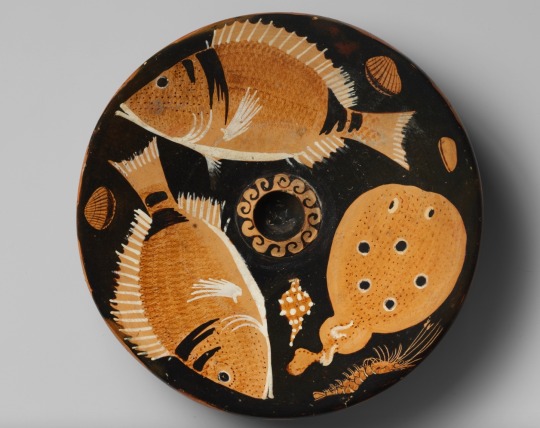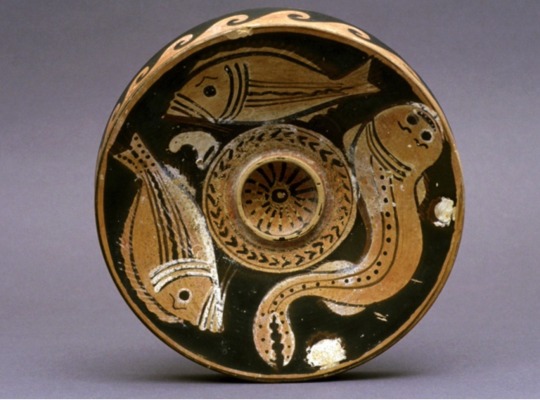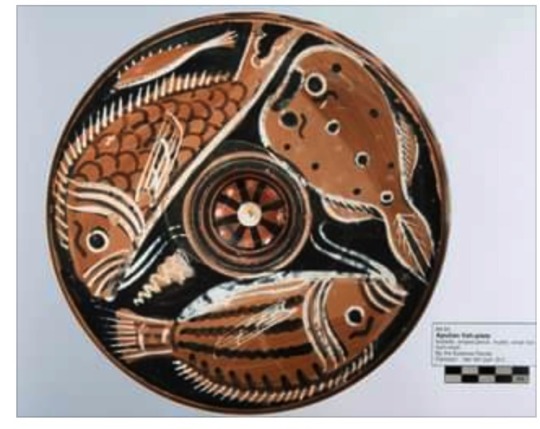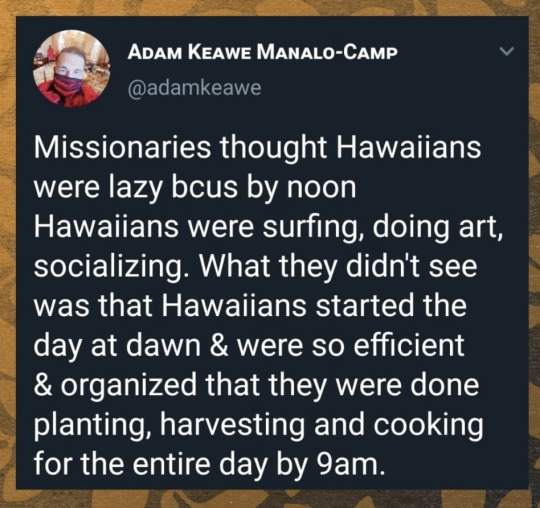Text
I am being so serious when I say: if you have the financial and time privilege to get a group of friends together and make an indie project, PLEASE do. Indie games, indie animations, indie comics etc etc
the art industries are kind of in the shitter. It’s not so much because of AI (though that doesn’t help) but because studios just aren’t hiring people and funding projects anymore. People who’ve been in the industry for decades are finding themselves struggling, and once you have a mortgage or kids it’s harder to do something as risky as making something on your own.
completing projects is hard. it takes a lot of time and effort, and most people can’t afford it. so if you CAN afford to make art, even at the risk of no financial gain, I strongly encourage you to be as resilient as you can. We’re at a point where these industries are not going to turn around by themselves, and waiting for jobs to open up again in order to get experience and portfolio work might not be realistic.
people have been making art and telling stories longgggg before we were getting paid for it, and people aren’t going to stop just because no one has hired them to do so.
for everyone else: support indie artists when you can!!!! That person who made that cool indie game or youtube animation or webcomic might be doing this full time! your support might be the only reason they’re able to keep doing it.
and if you have already started an indie project: you’re so brave and I’m very proud of you!!! in fact, drop a link to it in the reblogs if you want! 👇
21K notes
·
View notes
Text
i....found a rare shoegaze tape. legit. band does not exist online. tape is at least 20 years old. This is so Sam
74K notes
·
View notes
Text
pssssst hey. hey. free and expansive database of folk and fairy tales. you can thank me later
22K notes
·
View notes
Text
My chronic pain doctor suggested I exercise more
I asked him “how?”
He looked confused. Said I should try a bit every day
I said “not when, how?” I asked what exercises I should do
He suggested half a dozen options that had all been explicitly banned by other doctors. I’m not allowed to run. I’m not allowed to bike. I’m not allowed to use my rowing machine or my punching bag.
I walk my dog whenever I have the energy and when it doesn’t hurt too much
What else can I do?
He told me I should exercise more
And then he changed the subject.
45K notes
·
View notes
Text
i love the strange reality of being a human person with a human brain. one time someone said something to me in a foreign language (japanese, which i do not speak) and i automatically responded in a different foreign language (spanish, which i do not speak well) and then we both said "what?" in english, an experience made more surreal by the fact that everyone around us was speaking loudly in canadian french (as this occurred in Quebec)
56K notes
·
View notes
Text
You can tell when someone’s frame of reference for “normal people” is more “people at the church sponsored ice cream social” and less “people on the bus”
158K notes
·
View notes
Text
having friends notably older than you is fantastic actually, cause you can drop in a little mention of how old you would have been at the time of a story they tell and watch the existential crisis set in
49K notes
·
View notes
Text
42K notes
·
View notes
Text
Guys.
Y’all.
I…
I just. I just… i have discovered something. And I have laughed too much. I have laughed every time I have tried to explain it to someone. I cannot get through this.
Look. Okay.
There are two things you need to know, here.
First: There’s a style of Greek pottery that was popular during the Hellenic period, for which most of the surviving examples are from southern Italy. We call them ‘fish plates’ because, well, they’re plates, and they’re decorated with fish (and other marine life).
Like this one, currently in the Met:

Or this one, currently in the Cleveland Museum of Art:

They’re very cool. We’re not 100% sure what they were for, because most of the surviving ones were found as grave goods, but that’s a different post.
The second thing you need to know is that when we (Classics/archaeology/whatever as a discipline) have a collection of artefacts, like vases, sculptures, paintings, etc. and we do not know the name of the artist, but we’re pretty sure one artist made X, Y and Z artefacts, we come up with a name for that artist. There are a whole bunch of things that could be the source for the name, e.g. where we found most of their work (The Dipylon Master) or the potter with whom they worked (the Amasis Painter), a favourite theme (The Athena Painter), the Museum that ended up with the most famous thing they did (The Berlin Painter) or a notable aspect of their style. Like, say, The Eyebrow Painter.
Guess what kind of pottery the Eyebrow Painter made?



52K notes
·
View notes
Text
I get variations on this comment on my post about history misinformation all the time: "why does it matter?" Why does it matter that people believe falsehoods about history? Why does it matter if people spread history misinformation? Why does it matter if people on tumblr believe that those bronze dodecahedra were used for knitting, or that Persephone had a daughter named Mespyrian? It's not the kind of misinformation that actually hurts people, like anti-vaxx propaganda or climate change denial. It doesn't hurt anyone to believe something false about the past.
Which, one, thanks for letting me know on my post that you think my job doesn't matter and what I do is pointless, if it doesn't really matter if we know the truth or make up lies about history because lies don't hurt anyone. But two, there are lots of reasons that it matters.
It encourages us to distrust historians when they talk about other aspects of history. You might think it's harmless to believe that Pharaoh Hatshepsut was trans. It's less harmless when you're espousing that the Holocaust wasn't really about Jews because the Nazis "came for trans people first." You might think it's harmless to believe that the French royalty of Versailles pooped and urinated on the floor of the palace all the time, because they were asshole rich people anyway, who cares, we hate the rich here; it's rather less harmless when you decide that the USSR was the communist ideal and Good, Actually, and that reports of its genocidal oppression are actually lies.
It encourages anti-intellectualism in other areas of scholarship. Deciding based on your own gut that the experts don't know what they're talking about and are either too stupid to realize the truth, or maliciously hiding the truth, is how you get to anti-vaxxers and climate change denial. It is also how you come to discount housing-first solutions for homelessness or the idea that long-term sustained weight loss is both biologically unlikely and health-wise unnecessary for the majority of fat people - because they conflict with what you feel should be true. Believing what you want to be true about history, because you want to believe it, and discounting fact-based corrections because you don't want them to be true, can then bleed over into how you approach other sociological and scientific topics.
How we think about history informs how we think about the present. A lot of people want certain things to be true - this famous person from history was gay or trans, this sexist story was actually feminist in its origin - because we want proof that gay people, trans people, and women deserve to be respected, and this gives evidence to prove we once were and deserve to be. But let me tell you a different story: on Thanksgiving of 2016, I was at a family friend's house and listening to their drunk conservative relative rant, and he told me, confidently, that the Roman Empire fell because they instituted universal healthcare, which was proof that Obama was destroying America. Of course that's nonsense. But projecting what we think is true about the world back onto history, and then using that as recursive proof that that is how the world is... is shoddy scholarship, and gets used for topics you don't agree with just as much as the ones you do. We should not be encouraging this, because our politics should be informed by the truth and material reality, not how we wish the past proved us right.
It frequently reinforces "Good vs. Bad" dichotomies that are at best unhelpful and at worst victim-blaming. A very common thread of historical misinformation on tumblr is about the innocence or benevolence of oppressed groups, slandered by oppressors who were far worse. This very frequently has truth to it - but makes the lies hard to separate out. It often simplifies the narrative, and implies that the reason that colonialism and oppression were bad was because the victims were Good and didn't deserve it... not because colonialism and oppression are bad. You see this sometimes with radical feminist mother goddess Neolithic feminist utopia stuff, but you also see it a lot regarding Native American and African history. I have seen people earnestly argue that Aztecs did not practice human sacrifice, that that was a lie made up by the Spanish to slander them. That is not true. Human sacrifice was part of Aztec, Maya, and many Central American war/religious practices. They are significantly more complex than often presented, and came from a captive-based system of warfare that significantly reduced the number of people who got killed in war compared to European styles of war that primarily killed people on the battlefield rather than taking them captive for sacrifice... but the human sacrifice was real and did happen. This can often come off with the implications of a 'noble savage' or an 'innocent victim' that implies that the bad things the Spanish conquistadors did were bad because the victims were innocent or good. This is a very easy trap to fall into; if the victims were good, they didn't deserve it. Right? This logic is dangerous when you are presented with a person or group who did something bad... you're caught in a bind. Did they deserve their injustice or oppression because they did something bad? This kind of logic drives a lot of transphobia, homophobia, racism, and defenses of Kyle Rittenhouse today. The answer to a colonialist logic of "The Aztecs deserved to be conquered because they did human sacrifice and that's bad" is not "The Aztecs didn't do human sacrifice actually, that's just Spanish propaganda" (which is a lie) it should be "We Americans do human sacrifice all the god damn time with our forever wars in the Middle East, we just don't call it that. We use bullets and bombs rather than obsidian knives but we kill way, way more people in the name of our country. What does that make us? Maybe genocide is not okay regardless of if you think the people are weird and scary." It becomes hard to square your ethics of the Innocent Victim and Lying Perpetrator when you see real, complicated, individual-level and group-level interactions, where no group is made up of members who are all completely pure and good, and they don't deserve to be oppressed anyway.
It makes you an unwitting tool of the oppressor. The favorite, favorite allegation transphobes level at trans people, and conservatives at queer people, is that we're lying to push the Gay Agenda. We're liars or deluded fools. If you say something about queer or trans history that's easy to debunk as false, you have permanently hurt your credibility - and the cause of queer history. It makes you easy to write off as a liar or a deluded fool who needs misinformation to make your case. If you say Louisa May Alcott was trans, that's easy to counter with "there is literally no evidence of that, and lots of evidence that she was fine being a woman," and instantly tanks your credibility going forward, so when you then say James Barry was trans and push back against a novel or biopic that treats James Barry as a woman, you get "you don't know what you're talking about, didn't you say Louisa May Alcott was trans too?" TERFs love to call trans people liars - do not hand them ammunition, not even a single bullet. Make sure you can back up what you say with facts and evidence. This is true of homophobes, of racists, of sexists. Be confident of your facts, and have facts to give to the hopeful and questioning learners who you are relating this story to, or the bigots who you are telling off, because misinformation can only hurt you and your cause.
It makes the queer, female, POC, or other marginalized listeners hurt, sad, and betrayed when something they thought was a reflection of their own experiences turns out not to be real. This is a good response to a performance art piece purporting to tell a real story of gay WWI soldiers, until the author revealed it as fiction. Why would you want to set yourself up for disappointment like that? Why would you want to risk inflicting that disappointment and betrayal on anyone else?
It makes it harder to learn the actual truth.
Historical misinformation has consequences, and those consequences are best avoided - by checking your facts, citing your sources, and taking the time and effort to make sure you are actually telling the truth.
14K notes
·
View notes
Photo

Now you know — view on Instagram https://ift.tt/3AGm34f
28K notes
·
View notes
Text
cat: hey you gonna eat that?
human: uh, that’s a rat. They’ve been showing up ever since we started harvesting grain. We don’t eat them, they eat our food.
cat: free game then. Cool.
human: be my guest.
cat: hey is this spot free? It looks warm and I need a place to have my litter.
humans: this is my house. Feel free, I guess, just don’t get stepped on.
cat: hey can you watch my kittens for me? I need to hunt and I don’t want predators finding them.
human: holy shit these buggers are cute. Nothing will happen to them.
cat: I am going to climb on your lap now and you are going to love me.
human: I’m ok with this.
176K notes
·
View notes





